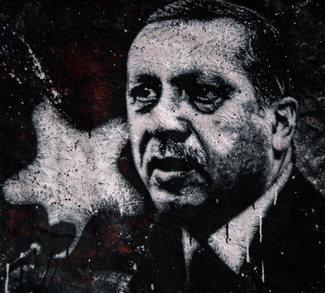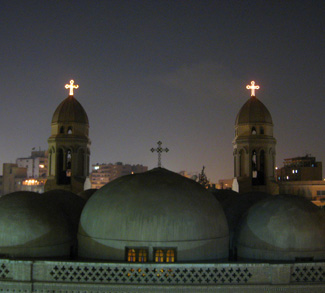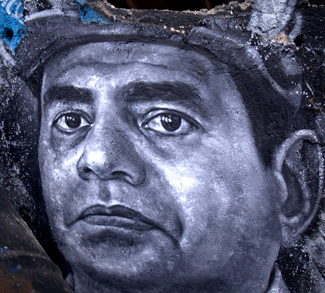Even as the firestorm surrounding Jamal Khashoggi’s murder monopolizes media attention across the Arab world, an event at Chatham House in London this week took a step back to focus on the foreign policy of Qatar – a country quite familiar with Mohammad bin Salman’s aggressive refusal to brook dissent. Of course, while referring to “foreign” policy, the Chatham House event was really interested in defining Qatar’s place in the post-2011 Arab World.
Qatari foreign ministry spokesperson Lowlah al-Khater and Omani academic Abdullah Baabood kicked off the discussion by reminding the audience of a problem often forgotten in the tumult of the region’s wars and crises: the failure of most Arab governments to address root causes of the Arab Spring uprisings. As al-Khatar, pointed out: “denying the problems and the accumulative issues we’ve been having in our region, such as failure in development, poverty, the basic human right to dignity for the Arab peoples… denying that is not going to help us in any way.” Baabood echoed that point, pointing out that “if we continue the way that we are, and we keep failing in socioeconomic development and political participation… those earthquakes are going to come back to haunt us.”
Qatar’s role
It should come as no surprise to longtime Qatar watchers that a discussion of the country’s foreign policy would be seen in the context of the governance failures of its neighbors in the region. For decades, Qatar’s al-Jazeera media network – by far the country’s most recognizable export – has provided 25 million viewers in countries like Egypt, Bahrain, and Iraq a lifeline to critical journalism and alternative viewpoints.
Unfortunately for the Qataris, those efforts to break through the barriers of state censorship and propaganda of regional powers haven’t produced progress in representative government and the rule of law in the region. Instead, Qatar’s neighbors in the Gulf Cooperation Council (GCC) decided to blockade the messenger and strangle the peninsula into quiet submission. When the Qataris showed they would instead resist, the Saudis decided they would literally cut Qatar off from the mainland and dump nuclear waste on the border.
Tellingly, one of Saudi Arabia’s key demands in negotiations to lift the blockade was for Qatar to disband al-Jazeera, sending a clear message that Riyadh and its allies still perceive the outlet’s critical voice and pressure for accountability as an existential threat. Other blockading countries, and especially Egypt, share this antipathy to the Qatari news network, which they accuse of being a mouthpiece for the Muslim Brotherhood. As part of his wider crackdown, Abdel Fattah al-Sissi has jailed al-Jazeera journalists and shut down its operations in Egypt.
Riyadh’s response
With Qatar successively maneuvering around the blockade with assistance from Turkey, Iran, and its Asian partners, the diplomatic conflict in the GCC has come to a standstill. While the Saudis have not managed to bring Doha to heel, they still consider their overall response to the Arab Spring – one that took the warnings voiced by the Chatham House panelists and used them as a blueprint – a success. Long before the autocratic Mohammad bin Salman came to power in Saudi Arabia, Riyadh wound up leading the “counterrevolution” that ensured Arab popular demands would be crushed instead of translating into long-overdue political development.
To that end, Saudi oil dollars were mobilized to pay for the brutal retrenchment of authoritarian governance. In Egypt, al-Sissi’s regime has received an estimated $25 billion in “grants, loans, and investments” from Saudi Arabia and the United Arab Emirates since overthrowing President Mohamed Morsi in a 2013 coup. When Saudi money wasn’t enough to preserve the status quo in Bahrain, Riyadh sent in tanks.
At home, the Saudi regime took to the offensive by repressing dissenters instead of addressing political and socioeconomic issues. This aggressive approach was paired with a raft of new state largesse to calm the mood at home. If al-Jazeera sought to cover the upheaval, Saudi Arabia’s was to extinguish it before the Arab Spring began a new chapter in Riyadh.
Empty reforms
This is not to say the Saudis and their allies are ignorant of the deeper issues al-Khater and Baabood pointed to. Ironically enough, Saudi crown prince Mohammad bin Salman designed his program of ostensible “reforms” to respond to the economic grievances that drove revolutions in Egypt, Tunisia, and elsewhere – unemployment, a lack of opportunity, and socioeconomic inequality. Bin Salman’s bet was that he could pursue economic reforms without budging on the political question. His brief tenure at the top echelon of the Saudi power structure, in fact, had already been marked by draconian measures even before the assassination of Khashoggi.
In 2017, several hundred of the richest people in the country were arrested on his orders in what was known as the Ritz-Carlton purge, supposedly in an attempt to combat corruption at the top – while netting the government $100 billion in anti-corruption settlements. More recently, his security services also arrested the very women activists who spent decades risking their freedom to fight the driving ban he wanted credit for lifting.
No alternative
His failure, and the global backlash against his excesses, seems to prove this “alternative model’ will not work. By continuing to stifle liberties and violate human rights – often with the silent complicity of their Western allies – leaders such as bin Salman and al-Sissi are creating the exact kind of political climate in which dissent flourishes.
The generational and economic catalysts that sparked the 2011 uprisings have hardly gone away. As the Chatham House speakers made clear, the region is still facing the same challenges nearly eight years on from Mohamed Bouazizi’s self-immolation in Sidi Bouzid. The experiences of Syria, Yemen, Libya, and Egypt may have put many Arabs citizens off their desire for radical change for now, but unless this most recent crop of autocrats give way to real reformers, the next round of uprisings will always be inevitable.
The opinions, beliefs, and viewpoints expressed by the authors are theirs alone and don’t reflect the official position of Geopoliticalmonitor.com or any other institution.




